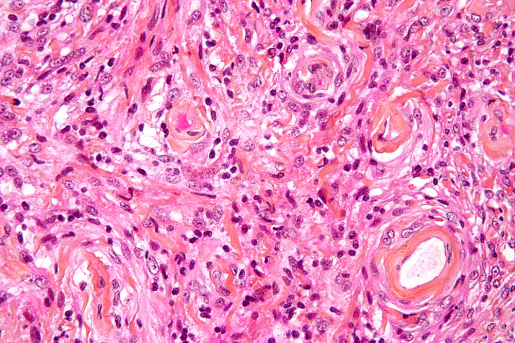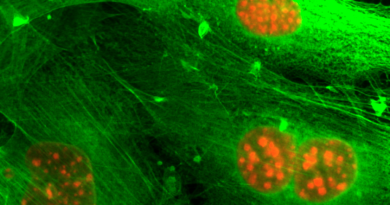A new biomarker can better predict meningioma response to radiation
A recent multi-institutional collaboration has led to the development of a new way to predict response to radiation for meningioma patients. Meningiomas are tumors that arise in the membranes surrounding the brain and the spinal cord and are the most common type of tumor originating in the brain. Currently, surgery and/or radiotherapy are the most effective treatments, although it is hard to predict how each patient will respond to these treatments.


“This study is a culmination of prior efforts by us and others to develop a purely molecular classification for meningiomas,” said study author, Dr. Akash Patel, a neurosurgeon and associate professor of neurosurgery at Baylor College of Medicine and a principal investigator at the Jan and Dan Duncan Neurological Research (Duncan NRI) at Texas Children’s Hospital. He is also a member of Baylor’s Dan L Duncan Comprehensive Cancer Center. “It was made possible by an international and multi-institutional collaboration among researchers and physicians who generously shared data and patient experience from their centers. We are also thankful to the patients and their families who participated in this research.”
The study published in Nature Medicine reports a new genetic biomarker that can predict the clinical outcomes of meningioma after radiation treatment. This 34 gene-signature panel was developed and validated in an investigator-blinded fashion in large cohorts of patients who received treatments in different medical centers around the world, including Baylor College of Medicine.
The team performed clinical and analytical validation of this biomarker on 1,856 independent meningiomas from 12 institutions across three continents, including 103 meningiomas from a prospective clinical trial and conducted roughly 4,898 bioinformatic assays.
This new biomarker showed better performance in discriminating post-operative meningioma outcomes compared to existing meningioma classification systems.

“This new biomarker offers insights into how meningioma patients with different gene expression patterns respond differently to treatments,” said study author, Dr. Tiemo Klisch, assistant professor of molecular and human genetics at Baylor and principal investigator at the Duncan NRI. “Findings from this study will help clinicians predict how patients with each meningioma subtypes respond to treatments with great accuracy.”
Dr. Stephen Magill at Northwestern University and Drs. David Raleigh and William Chen at University of California at San Francisco were co-corresponding authors of the study.
This study was supported by NIH grants (P50 CA097257, P50 CA221747, U01 CA180868, U10 CA180822, R01 CA262311, F32 CA213944, F30 CA246808 and T32 GM007618), a UCSF Catalyst Program Award, the Northwestern Medicine Malnati Brain Tumor Institute of the Lurie Cancer Center, the UCSF Wolfe Meningioma Program Project and the Trenchard Family Charitable Fund. This work was also supported by the Northwestern University NUSeq Core Facility and a Conquer Cancer Herman H. Freckman, MD, Endowed Young Investigator Award from the American Society of Clinical Oncology, by the Helen Diller Family Cancer Center Physician Scientist Program in Clinical Oncology (5K12 CA260225-03) and a Chan Zuckerberg Biohub San Francisco Physician-Scientist Fellowship.
The original article by Rajalaxmi Natarajan, Ph.D. is posted here.



